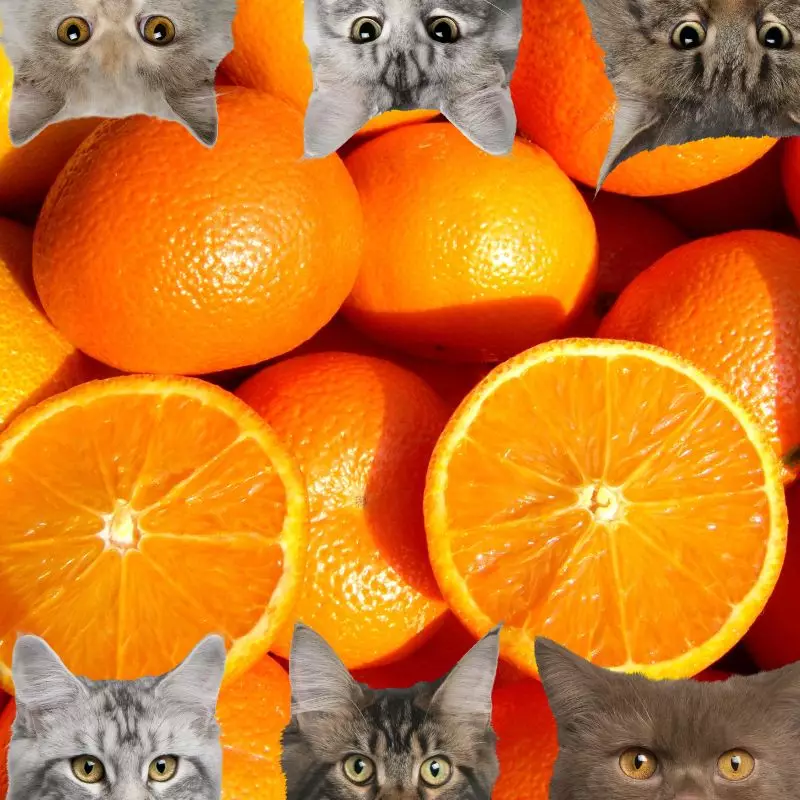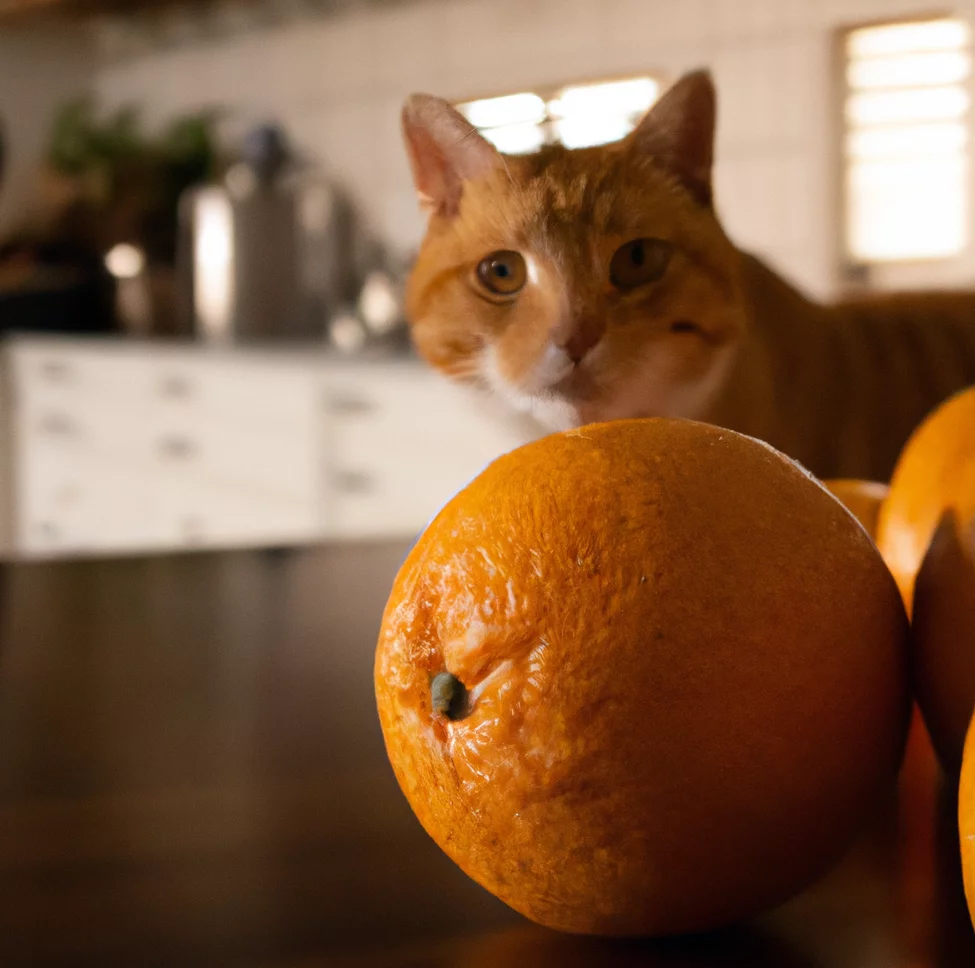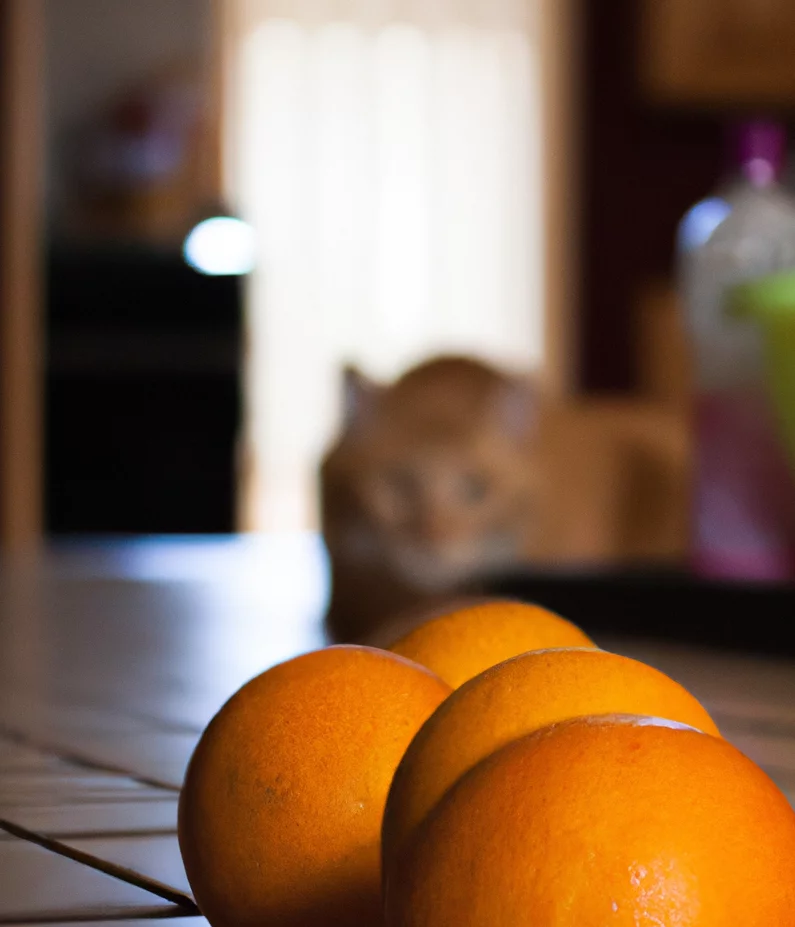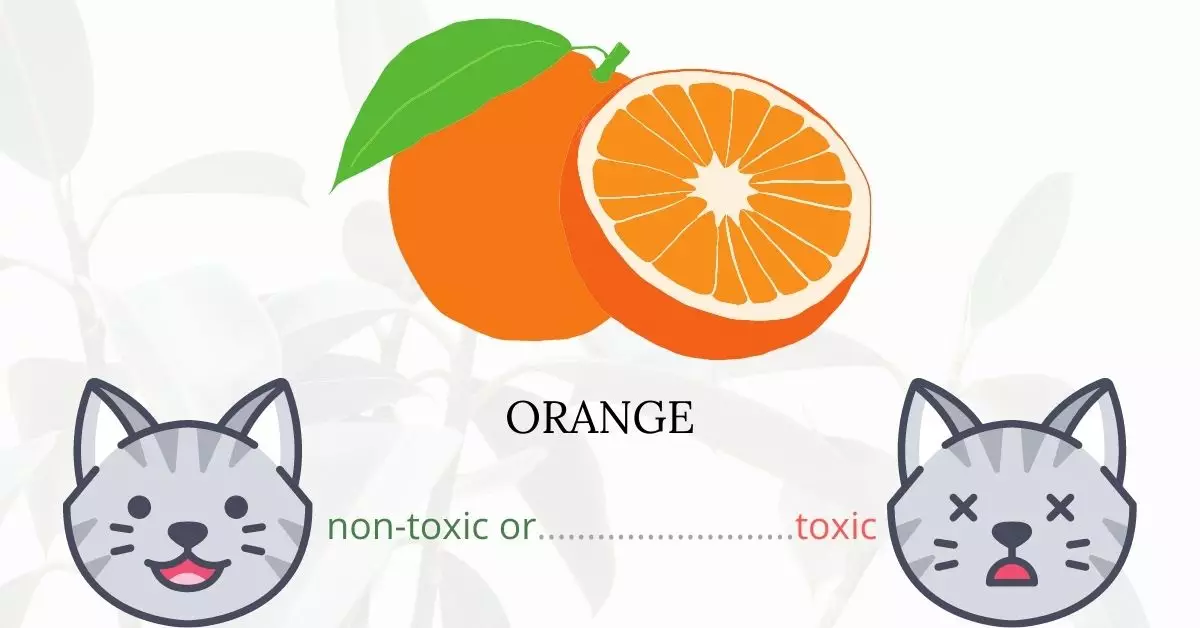Oranges, while a common fruit in many households, contain compounds that can be harmful to cats. Specifically, these citrus fruits are rich in essential oil extracts such as limonene and linalool, as well as psoralens. All of these substances have been identified as toxic to cats. Limonene is not only present in oranges but also in various flavorings, cosmetics, and cleaning products. Linalool, apart from contributing to the citrus scent, acts as a pesticide. Even though psoralens are occasionally used to address certain skin conditions in cats, excessive exposure can lead to photosensitivity disorders. As a result, if cats consume or come into contact with oranges, they might experience gastrointestinal distress and potential skin irritation.
This article is the result of collaborative efforts with a team of experienced DVMs (doctors of veterinary medicine). Their expertise, coupled with thorough research from high-authority sources such as the ASPCA and PetMD, ensures that the information presented here regarding the effects of plants on cats, with a focus on oranges, is accurate and current.
Clinical Signs of Orange Poisoning in Cats

When a cat comes into contact with, inhales, or ingests parts of the orange plant or fruit, various reactions can manifest. These reactions stem from the essential oil extracts and other compounds found in the orange, which are known to be toxic to felines. Below is a detailed overview of the symptoms associated with orange poisoning in cats, and the reasons behind each symptom:
- Vomiting: This is a primary response when a cat’s body tries to expel toxic substances ingested. Oranges contain compounds that the feline digestive system cannot process, prompting the body to remove them through vomiting.
- Diarrhea: Similar to vomiting, diarrhea is another way the body tries to rid itself of harmful substances. The irritants present in oranges can disturb the gastrointestinal tract, leading to this symptom.
- Drooling: The essential oils and citrusy taste of oranges can be overwhelming for cats. If they taste or even just smell these substances, they might drool excessively as a reaction to the intense and unfamiliar flavors and scents.
- Weakness: The toxins in oranges can lead to a drop in energy levels and overall physical strength in cats. This is due to the body diverting resources to detoxify and combat the ingested harmful substances.
- Depression: Cats can become lethargic or show reduced interest in their surroundings after ingesting toxic substances. This is often a result of the body’s reaction to the toxins and its attempt to conserve energy during the detoxification process.
- Allergic dermatitis: When cats come into direct contact with the oils found in oranges, they may develop skin reactions. This is an allergic response, manifesting as redness, itching, or even blisters.
- Trembling: This symptom is an indication of the nervous system’s response to the toxins. Trembling or shivering can occur as the body reacts to the poisonous compounds present in oranges.
If you suspect your cat has come into contact with or ingested any part of an orange, it’s essential to consult a veterinarian immediately to ensure their safety and well-being.
First Aid and Treatment of Orange Poisoning in Cats

If your cat has eaten an orange but has come into contact with it and is experiencing skin irritation, the doctor will need to bathe him. This will help to remove any toxins from his system as well as calm his inflamed skin. If he already has irritation patches, the vet can treat the inflammation and itching with a topical corticosteroid. After the bath, wrap your cat in towels and blankets to keep him warm until he is entirely dry.
In case of orange ingestion, the veterinarian may induce vomiting using oral hydrogen peroxide. After this therapy is completed, the vet can use activated charcoal to absorb any remaining poisons in the cat’s stomach cavity. Alternatively, he could do a gastric lavage, which is a stomach wash, to drain out any leftover toxins that may cause inflammation.
Recovery from Orange Poisoning in Cats

After therapy, the majority of cats will recover completely. Discuss your cat’s diet with your vet prior to going home. Because your cat’s stomach may still be sensitive after treatment, the vet may advise you to feed him only soft foods for the next few days while he recovers and gains strength.
Prevention of Orange Poisoning in Cats
Remove any citrus fruits from your home or put them in a secure location where your cat will not be able to get them. To reduce the chance of hazardous plant exposure, keep your cat indoors. Make sure any perfume or shampoo you’re using doesn’t contain citrus oil extracts by reading the label.
If you love plants but have cats at home, check out these lists:





